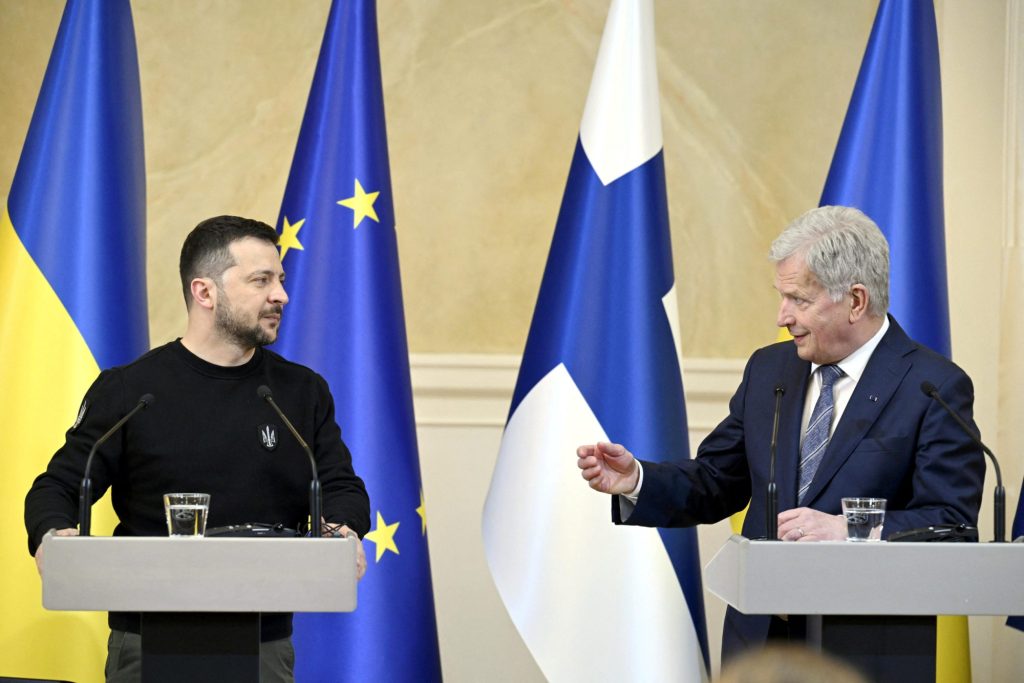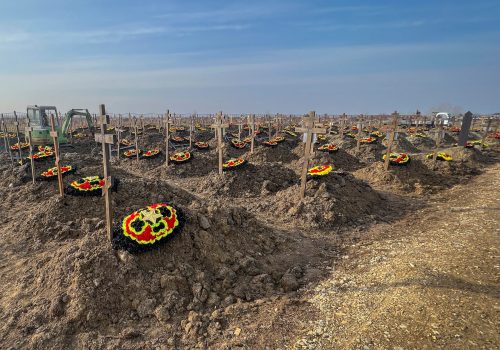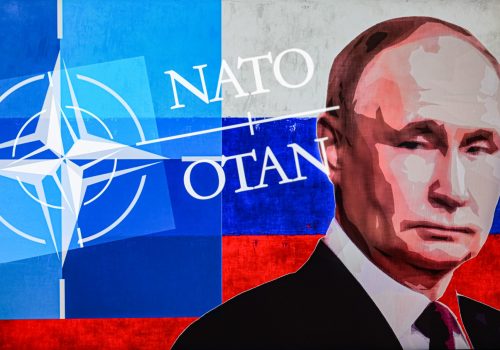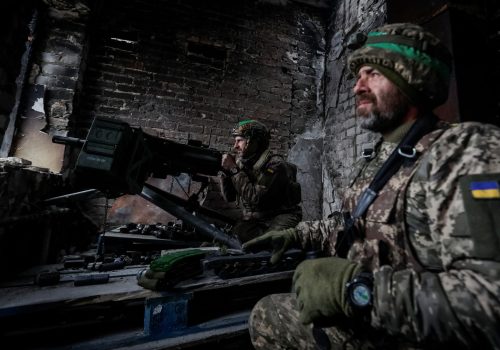It isn’t easy to remain optimistic when a malevolent superpower has sent its armies to destroy your country. But thanks in no small part to Finland, Ukraine is welcoming the spring season with renewed hope and determination.
Here in Kyiv, we regard Finland’s recent accession to full NATO membership as a milestone for broader European security and for our own continuing battle against Russian imperial aggression. We are also happy to have been reminded of Finland’s inspirational record of resisting Russian bullies.
It is almost uncanny how the Kremlin of Vladimir Putin in the 2020s has come to resemble the Kremlin of Joseph Stalin in the 1930s. Back then, it was Stalin’s lust to reimpose Imperial Russia’s long-lost borders that turned his attention to strategically valuable Finnish territories.
When Helsinki refused to cede its land, a Soviet invasion loomed. Stalin’s generals were in no doubt that Finland would crumble quickly. Andrei Zhdanov, the Communist party chief in Leningrad, was so confident of a quick campaign that he ordered Russian composer Dmitri Shostakovich to produce a new piece of music to be performed by the Red Army’s marching bands at a victory parade in Helsinki.
Every student of Finnish history knows what happened next. Soviet forces invaded in November 1939 with more than 20 divisions totaling around 630,000 men. Bombs fell on Helsinki, killing dozens of civilians. The Russians, peddling lies then as now, claimed they were dropping food supplies. So heavily outgunned and outnumbered were the Finns that Soviet generals predicted Helsinki would fall by December 21, Stalin’s 60th birthday.
You can probably imagine the pleasure it gives a Ukrainian to write that Stalin never got his birthday present. The Finns fought back magnificently. Soldiers skilled at cross-country skiing launched a devastating guerrilla campaign. It is often forgotten that during this Winter War, the Finns invented the Molotov cocktail, a handmade explosive named after the Soviet foreign minister of the time.
The Red Army never made it to Helsinki. Thousands of soldiers died of frostbite. Many refused to fight. After an ambush blocked the Soviet advance on the Raate Road, Finnish soldiers found a Red Army truck full of musical instruments.
Today, it is Putin’s turn to wait for a victory parade he assumed would come so easily in Ukraine. Thousands more Russian soldiers have died in a futile attempt to crush a smaller neighbor. The Kremlin’s generals have again been humiliated.
Stay updated
As the world watches the Russian invasion of Ukraine unfold, UkraineAlert delivers the best Atlantic Council expert insight and analysis on Ukraine twice a week directly to your inbox.
If Putin had hoped to occupy Ukraine to keep NATO away from Russia’s borders, he has achieved the opposite result. Finland’s accession has doubled the length of NATO’s borders with Russia. With Sweden’s admission to NATO still pending, there is no mistaking the paradigm shift in the European and Scandinavian security framework. This is the direct result of Putin’s calamitous misjudgments.
The question now is how NATO should move forward in light of Putin’s blind intransigence. The alliance’s next summit will be held in July in Vilnius. We sincerely hope that any remaining barriers to Sweden’s admission will be lifted. In Kyiv, we are convinced that NATO membership is the best guarantee of peace in Europe, not only for Ukraine, but for all countries in range of Putin’s missiles. In the face of naked Russian belligerence, it makes no sense that certain parts of Europe should be part of NATO while other countries are excluded.
Today, Ukraine is the best advertisement for NATO. The heroic fight of our people and the unity displayed by those who support us have proved that NATO is strongest security alliance in the world. That is why we continue to seek Ukrainian membership of NATO.
We are grateful to NATO Secretary General Jens Stoltenberg, who acknowledged during a recent visit to Kyiv that “Ukraine’s future is in NATO.” We fulfill the main requirements of membership: we are a functioning democracy with a market economy and we treat all sections of our population fairly.
Eurasia Center events

Before Ukraine joins the alliance, we must first deter new aggression and another destabilization on the European continent. We expect our allies to provide Ukraine with effective and firm security guarantees reflected in the Kyiv Security Compact, drafted by an international working group under our chairmanship together with former NATO Secretary General Anders Fogh Rasmussen.
Of course, we understand that some NATO members might be concerned by the security commitments required in times of war. NATO’s Article Five is based on the premise that an attack on one is an attack on all. Nobody wants another world war.
Nevertheless, there can no longer be any room for hesitation. Putin’s actions in Ukraine have demonstrated time and again the kind of threat he poses to global security and human decency. It is not enough to deny him rewards for the atrocities his armies have committed; he must be brought to justice.
We need only look at Finland to see the bluster behind Putin’s threats. Helsinki’s decision to join NATO was preceded by a familiar barrage of veiled Kremlin warnings of “counter-measures” and “military and political consequences.” Yet once Finland’s membership was confirmed, Putin was reduced to meaningless platitudes. “There is nothing new for us,” he claimed. “We have nothing that could bother us from the point of view of Finland’s or Sweden’s membership. Everything is going according to plan.” Should Ukraine be admitted to NATO, Putin will have lost his main reason for invading the country. The end of the war will be closer.
As spring turns into summer and new military campaigns loom larger, Ukraine will take comfort and inspiration from the determination of our allies to welcome Ukraine into NATO, and before full membership, to provide Ukraine with security guarantees. We are reminded again of Shostakovich’s Suite on Finnish Themes, composed for that canceled victory parade in Helsinki. Embarrassed to have been dragged into a Stalinist debacle, the great composer quietly shelved the music, which was never heard in public during his lifetime. Perhaps there is a lesson for Putin in Finland’s courageous past.
Andriy Yermak is the head of Ukraine’s Office of the President.
Further reading
The views expressed in UkraineAlert are solely those of the authors and do not necessarily reflect the views of the Atlantic Council, its staff, or its supporters.

The Eurasia Center’s mission is to enhance transatlantic cooperation in promoting stability, democratic values and prosperity in Eurasia, from Eastern Europe and Turkey in the West to the Caucasus, Russia and Central Asia in the East.
Follow us on social media
and support our work
Image: President of Finland Sauli Niinisto and visiting President of Ukraine Volodymyr Zelenskyy attend a joint press conference at the Presidential Palace in Helsinki, Finland, May 3, 2023. (Lehtikuva/Markku Ulander via REUTERS)




